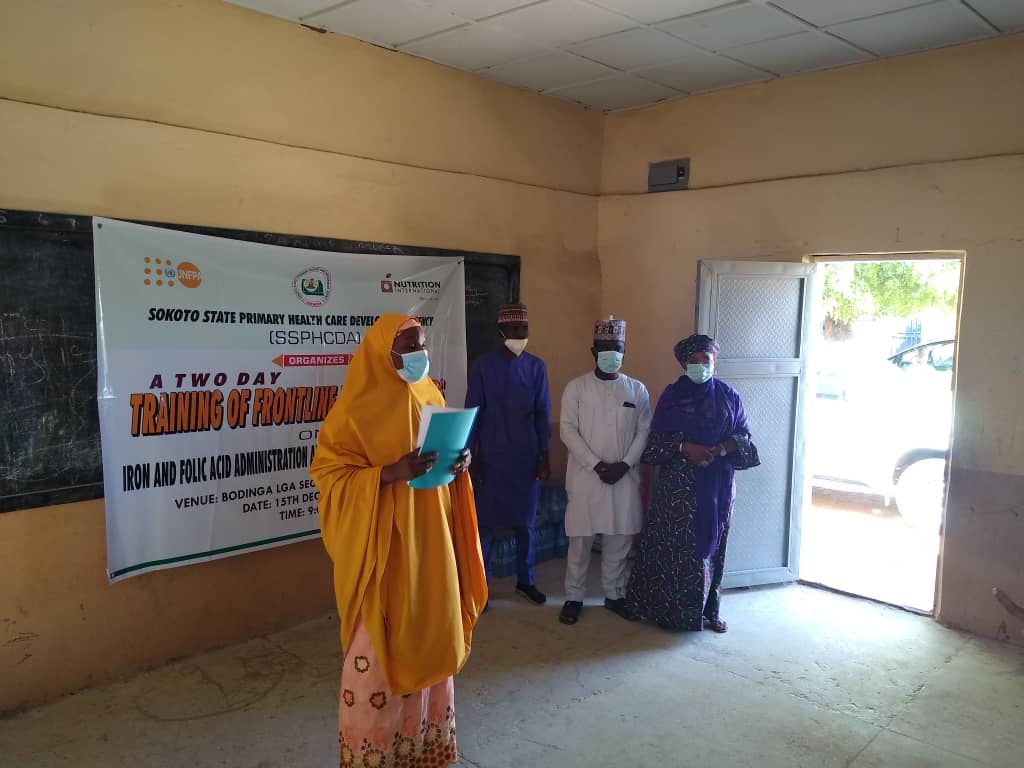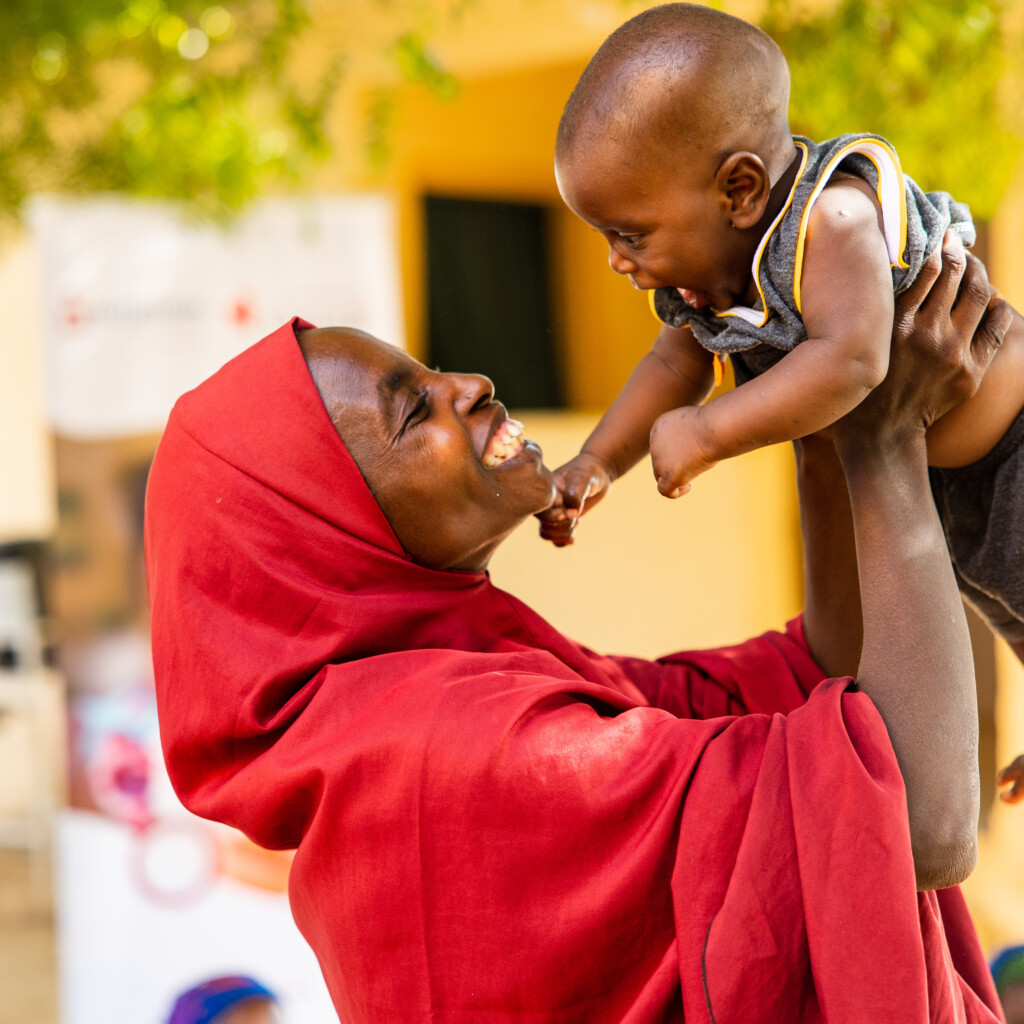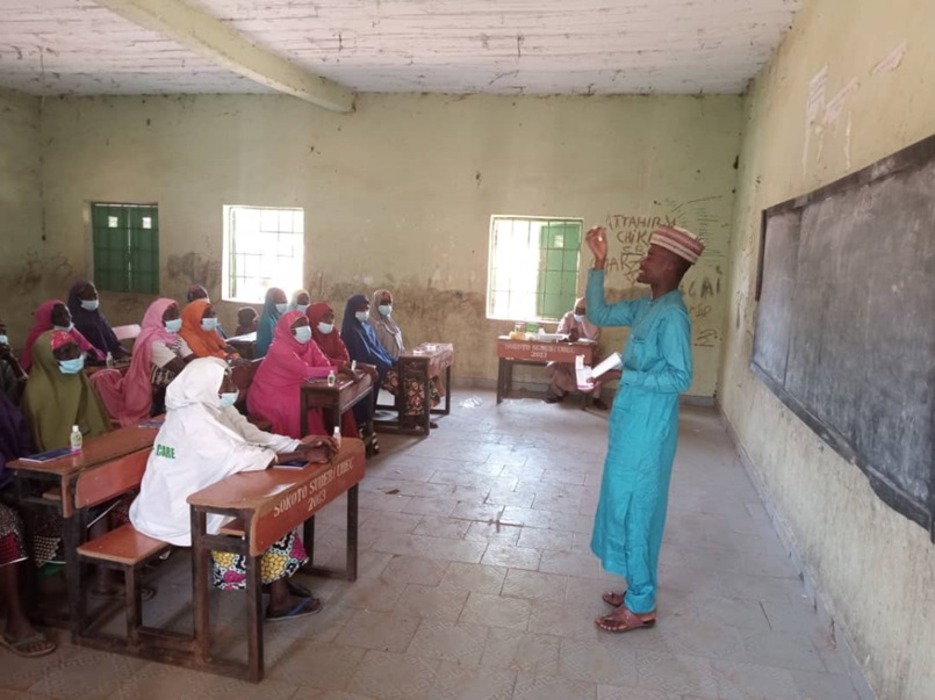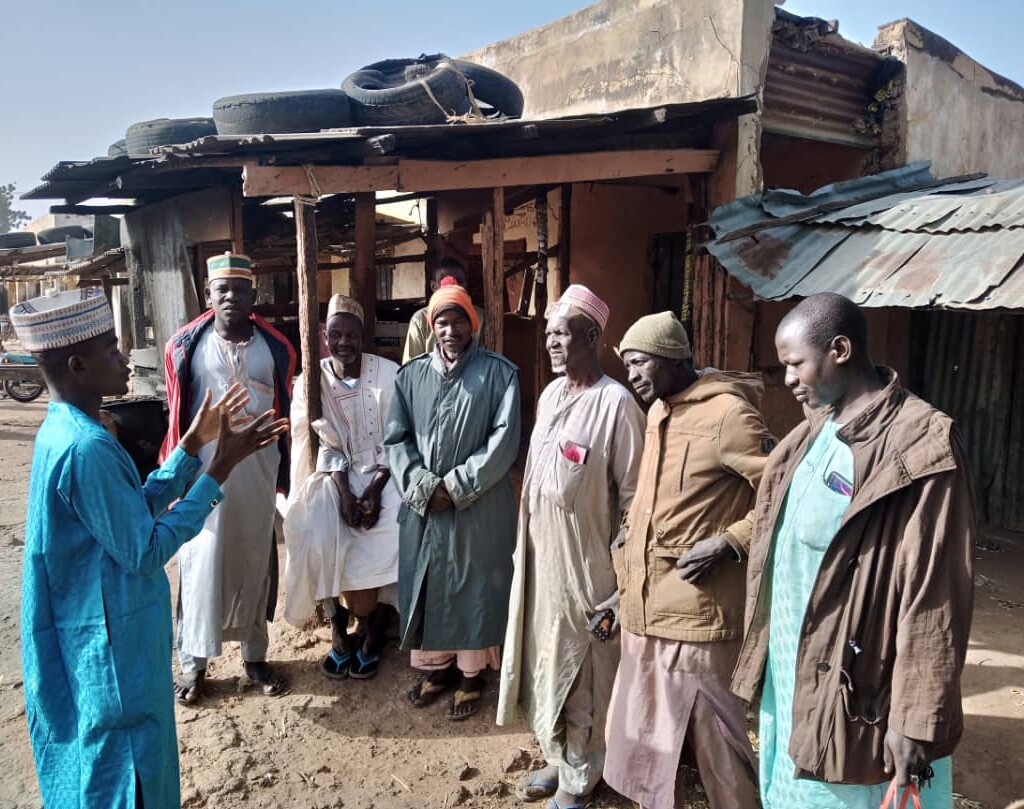Our country teams developed and implemented a series of gender action plans in response to the challenges and recommendations identified within last year’s sex- and gender-based analyses. These served as a roadmap, allowing countries to deploy new strategies to promote gender equality, including increasing the agency of adolescent girls and women and promoting the meaningful engagement of men. We also developed and disseminated messages about gender equality, as well as gender-responsive nutrition, to increase the awareness of stakeholders and communities on the rights of women and adolescent girls, which led to an increased demand for accessing and utilizing nutrition and health services.
In Kenya, we continued to scale up mother-to-mother support groups and integrate gender empowerment messages to increase the participation and decision-making capabilities of mothers. In India, the birth package program training in the Nutrition International-established Centre of Excellence involved counselling that focused on male involvement in maternal and newborn care, including breastfeeding and kangaroo mother care.
Our dedication to gender equality prompted the development of a second online course for Nutrition International staff to guide the activities needed to apply gender mainstreaming throughout the project cycle. We also conducted a learning review to synthesize evidence and assess the challenges and opportunities faced within the organization to expand our work within gender equality. This review sets the stage for the development of an updated Program Gender Equality Strategy to reflect progress and delineate what gender equality looks like in each area of Nutrition International’s work.



